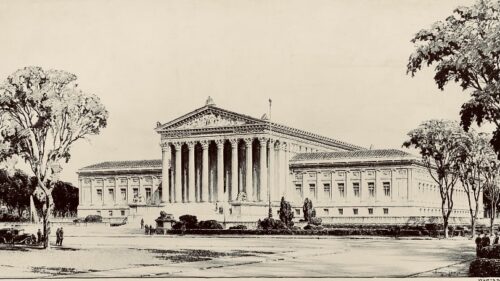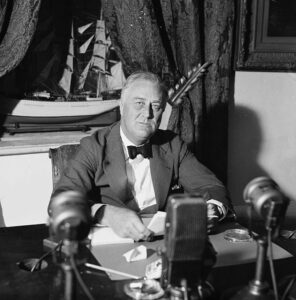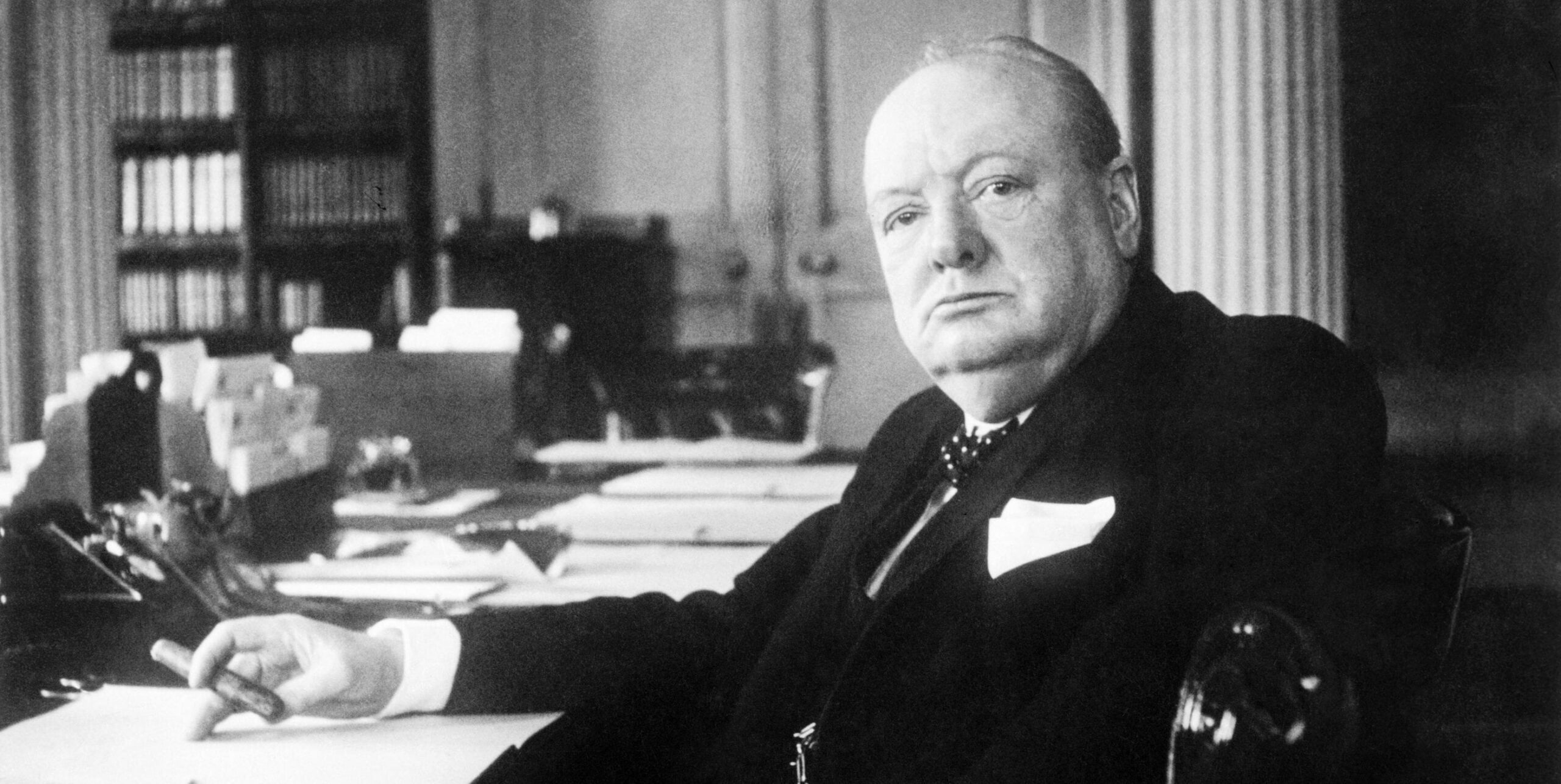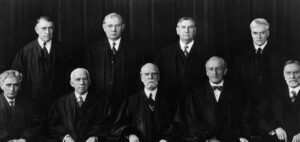
President Roosevelt's "Fireside Chat" on the Plan for Reorganization of the Judiciary
Roosevelt’s New Deal and the Supreme Court

President Roosevelt was outraged when the Supreme Court invalidated two of the most important New Deal initiatives – the National Industrial Recovery Act and the Agricultural Adjustment Act (“Fireside Chat” On the Purposes and Foundations of the Recovery Program (1933); Schechter Poultry Corp. v. United States (1935); United States v. Butler (1936)) – on what he regarded as an outmoded interpretation of the Constitution. Like many liberals, he believed that much of the problem stemmed from a bloc of four conservative Supreme Court justices – the so-called “Four Horsemen” – who seemed to oppose any federal intrusion into economic affairs. Given that there was a total of nine justices on the Court, all the Horsemen needed to do to block any New Deal measure was to convince one more justice that their interpretation was correct. Roosevelt described the current situation with the Court thusly:
Last Thursday I described the American form of Government as a three-horse team provided by the Constitution to the American people so that their field might be plowed. The three horses are, of course, the three branches of government – the Congress, the Executive and the Courts. Two of the horses are pulling in unison today; the third is not. Those who have intimated that the President of the United States is trying to drive that team, overlook the simple fact that the President, as Chief Executive, is himself one of the three horses.
It is the American people themselves who are in the driver’s seat.
It is the American people themselves who want the furrow plowed.
It is the American people themselves who expect the third horse to pull in unison with the other two.
Roosevelt’s Plan to Protect New Deal Legislation
Emboldened by his overwhelming reelection victory in 1936, the president in February called congressional leaders and members of his cabinet to a meeting at the White House, and informed them that the Judicial Procedures Reform Act was being put before Congress that same day. Many of the justices on the Supreme Court were elderly, the president explained, and needed more assistance in working through the Court’s heavy caseload. The act, therefore, proposed to add a new justice for every member above seventy years of age. Given the makeup of the current Court, this would allow Roosevelt to name no fewer than six new justices. There was nothing unconstitutional about Roosevelt’s plan, since the Constitution does not specify how many judges the Supreme Court should have. When some in Congress balked at Roosevelt’s plan – accusing the president of trying to “pack” the Court – he took to the airwaves in one of his famous “Fireside Chats.”
If by that phrase “packing the Court” it is charged that I wish to place on the bench spineless puppets who would disregard the law and would decide specific cases as I wished them to be decided, I make this answer: that no President fit for his office would appoint, and no Senate of honorable men fit for their office would confirm, that kind of appointees to the Supreme Court.
But if by that phrase the charge is made that I would appoint and the Senate would confirm Justices worthy to sit beside present members of the Court who understand those modern conditions, that I will appoint Justices who will not undertake to over-ride the judgment of the Congress on legislative policy, that I will appoint Justices who will act as Justices and not as legislators – if the appointment of such Justices can be called “packing the Courts,” then I say that I and with me the vast majority of the American people favor doing just that thing – now. . . .



